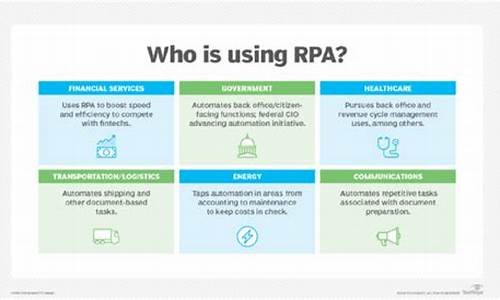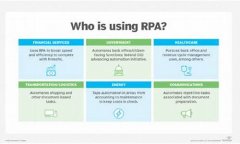How RPA Drives Innovation in Business Processes
Robotic Process Automation (RPA) is revolutionizing the way businesses operate by driving innovation and improving efficiency in business processes. With the power to automate repetitive and time-consuming tasks, RPA is transforming organizations across industries. This article explores how RPA is fostering innovation, enhancing productivity, and driving digital transformation in business environments.
What is RPA?
Robotic Process Automation (RPA) refers to the use of software robots or "bots" to automate routine tasks within business processes. These tasks often include data entry, invoice processing, customer service, and more. RPA helps businesses reduce manual intervention, minimizing human error and increasing operational efficiency. The technology allows organizations to automate high-volume, rule-based tasks that can be easily defined and executed by bots.
How RPA Enhances Business Innovation
RPA enables businesses to innovate by freeing up employees' time from mundane tasks and allowing them to focus on more strategic initiatives. With RPA, companies can optimize their workflows, improve customer satisfaction, and achieve faster response times. By automating repetitive tasks, businesses can accelerate decision-making and streamline their operations. RPA also fosters a culture of innovation by enabling employees to explore new ideas and technologies while reducing the burden of manual work.

Cost Savings and Operational Efficiency
One of the most significant benefits of RPA is its ability to drive cost savings. By automating manual tasks, businesses can reduce labor costs and improve resource allocation. RPA also enhances operational efficiency by processing tasks faster than humans, with fewer errors. This leads to better customer service, enhanced compliance, and reduced operational risks. Additionally, RPA can scale easily, allowing businesses to handle increased workloads without adding more resources.
RPA and Digital Transformation
RPA is a key enabler of digital transformation. It helps businesses stay competitive by adopting the latest technology and optimizing their processes. RPA integrates seamlessly with existing systems, enabling organizations to enhance their digital capabilities without overhauling their entire infrastructure. With RPA, businesses can achieve faster time-to-market, improve product quality, and gain deeper insights into their operations, all of which contribute to long-term success.
Conclusion
In conclusion, Robotic Process Automation is a game-changer for businesses looking to innovate and streamline their operations. By automating repetitive tasks, RPA boosts productivity, reduces costs, and drives digital transformation. As more companies embrace RPA, it will continue to play a pivotal role in shaping the future of business processes. Investing in RPA is an essential step for any organization looking to stay competitive in today’s fast-paced business environment.

 企业平台
企业平台 发现评估
发现评估 自动化
自动化 行业解决方案
行业解决方案 业务解决方案
业务解决方案 合作伙伴
合作伙伴 生态联盟
生态联盟 咨询服务
咨询服务 培训服务
培训服务 交流社区
交流社区 客户成功
客户成功 产品文档
产品文档
 公司介绍
公司介绍 新闻列表
新闻列表 联系我们
联系我们 加入我们
加入我们

